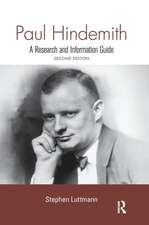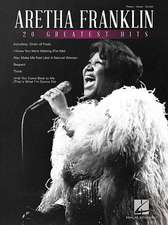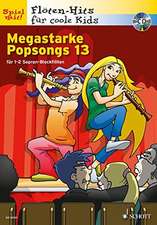Rhythms of Revolt: European Traditions and Memories of Social Conflict in Oral Culture
Editat de Éva Guillorel, David Hopkin, William G. Pooleyen Limba Engleză Hardback – 26 oct 2017
| Toate formatele și edițiile | Preț | Express |
|---|---|---|
| Paperback (1) | 422.96 lei 6-8 săpt. | |
| Taylor & Francis – 7 feb 2019 | 422.96 lei 6-8 săpt. | |
| Hardback (1) | 1272.54 lei 6-8 săpt. | |
| Taylor & Francis – 26 oct 2017 | 1272.54 lei 6-8 săpt. |
Preț: 1272.54 lei
Preț vechi: 1551.88 lei
-18% Nou
Puncte Express: 1909
Preț estimativ în valută:
243.53€ • 253.93$ • 202.40£
243.53€ • 253.93$ • 202.40£
Carte tipărită la comandă
Livrare economică 21 martie-04 aprilie
Preluare comenzi: 021 569.72.76
Specificații
ISBN-13: 9781138205048
ISBN-10: 1138205044
Pagini: 426
Dimensiuni: 156 x 234 x 29 mm
Greutate: 0.45 kg
Ediția:1
Editura: Taylor & Francis
Colecția Routledge
Locul publicării:Oxford, United Kingdom
ISBN-10: 1138205044
Pagini: 426
Dimensiuni: 156 x 234 x 29 mm
Greutate: 0.45 kg
Ediția:1
Editura: Taylor & Francis
Colecția Routledge
Locul publicării:Oxford, United Kingdom
Cuprins
Introduction: Oral Cultures and Traditions of Social Conflict: An Introduction to Sources and Approaches (Éva Guillorel and David Hopkin) 1. Political Songs and Memories of Rebellion in the Later Medieval Low Countries (Jan Dumolyn and Jelle Haemers) 2. Remembering the Peasants’ War in the Vosges: The Song of Rosemont (Georges Bischoff) 3. Competing Memories of a Swiss Revolt: the Prism of the William Tell Legend (Marc H. Lerner) 4. Songs as Echoes of Rebellion in Early Modern Brittany (Donatien Laurent and Michel Nassiet) 5. Turning Sacrilege into Victory. Catholic Memories of Calvinist Iconoclasm in the Low Countries, 1566-1700 (Erika Kuijpers and Judith Pollmann) 6. Orality and Popular Revolts in Louis XIV’s France: What makes the Camisards Special? (Philippe Joutard) 7. Popular Memory and Early Modern Revolts in Russia: From Razin to Pugačev (Malte Griesse) 8. An Chaoimhniadh Chomhachtaigh agus Séamus an Chaca (Worthy Knight/Worthless Shite): James II and His War in Irish Vernacular Literature and Folk Memory (Éamonn Ó Ciardha) 9. Melody as a Bearer of Radical Ideology: English Enclosures, The Coney Warren and Mobile Clamour (Gerald Porter) 10. Sing Out! Political and Commemorative Uses of Counter-Revolutionary Singing in Brittany (Youenn Le Prat) 11. The Floating Parliament: Ballads of the British Naval Mutinies of 1797 (Roy Palmer) 12. Lost Voices? Memories of Early Modern Peasant Revolts in Post-Emancipation Estonia (Kersti Lust) 13. The Enigma of Roddy McCorley Goes to Die: Forgetting and Remembering a Local Rebel Hero in Ulster (Guy Beiner) Conclusion: Popular Revolts and Oral Traditions (Peter Burke)
Recenzii
'This substantial and impressive volume is exceptionally well-constructed, covering a wide range of relevant material. This is an intellectually coherent, interesting and important collection which should make an impact and be consulted for many years to come.'
Andrew Hadfield, University of Sussex, UK
This is a book abundant in fascinating case studies, creative collisions, and consistently ferocious scholarship by both its editors and contributors. It is provocative in the best possible sense, asking stimulating questions and providing enough evidence of its claims to energize a major field of historical enquiry.
Oskar Cox Jensen - Folk Music Journal
Andrew Hadfield, University of Sussex, UK
This is a book abundant in fascinating case studies, creative collisions, and consistently ferocious scholarship by both its editors and contributors. It is provocative in the best possible sense, asking stimulating questions and providing enough evidence of its claims to energize a major field of historical enquiry.
Oskar Cox Jensen - Folk Music Journal
Descriere
The culture of insurgents in early modern Europe was primarily an oral one; memories of social conflicts were passed on through oral forms such as songs and legends. This popular history influenced political choices and actions through and after the early modern period. This book examines many examples of how memories of revolt were perpetuated in oral culture, and analyses how traditions were used. From the German Peasants’ War of 1525 to the counter-revolutionary guerrillas of the 1790s, oral traditions can offer radically different interpretations of familiar events. This is a ‘history from below’, which challenges existing historiographies of early modern revolts.

















